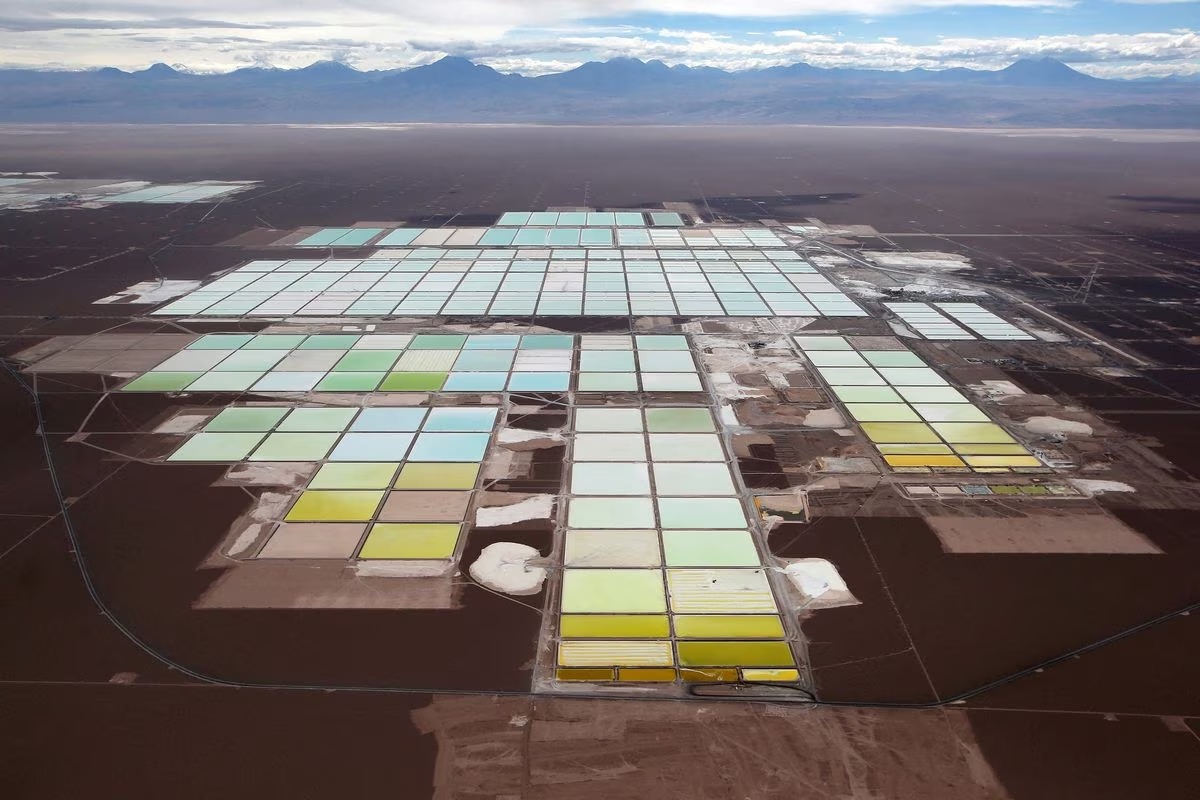LONDON, April 24 (Reuters) – Chile’s move to nationalise its lithium industry adds fresh supply chain uncertainty for global carmakers facing a shortage of electric vehicle (EV) battery materials and could provide fresh urgency to find new sources of the metal.
Chilean President Gabriel Boric announced plans last Thursday to create a new state-owned company to control its lithium industry. The country has the world’s largest reserves of the metal and accounts for 30% of global output.
While there are startups working on sodium ion batteries that could eventually provide a cheaper alternative for EVs, for many years to come the auto industry will be entirely dependent on lithium for its batteries.
Leading industry executives have warned of a supply chain crunch around the middle of the decade as the world’s top automakers plan to spend nearly $1.2 trillion through 2030 to develop and produce millions of electric vehicles.
“Automakers may be more trepidatious around committing to lithium supply deals from Chile until it’s clear what nationalisation will look like,” said Caspar Rawles, chief data officer at Benchmark Mineral Intelligence. “Most automakers will have been looking for a diversified portfolio of regional supply before this anyway, but perhaps this makes other regions more appealing.”
David Brocas, founder of mineral supply chain advisory firm Voltaire Minerals, said that battery metals are becoming as strategically important to countries as oil, and carmakers will need a special “diversified sourcing strategy” in response.
Major carmakers have already been looking for new lithium supplies in the United States, Europe and Africa. General Motors (GM.N), for instance, invested in Lithium Americas Corp (LAC.TO) in January and will help it to develop Nevada’s Thacker Pass lithium mining project.
This push for fresh options is expected to accelerate.
“We’re implementing a commodity roadmap that includes regional diversification,” a Volkswagen (VOWG_p.DE) spokeswoman said in an email. “So we’re looking at a lot of regions.”
Mercedes-Benz (MBGn.DE) Chief Technology Officer Markus Schaefer told reporters on Monday that the carmaker is “still open to direct purchasing from Chile – but there are alternatives, such as Australia and Canada.”
Shares in lithium miners in Australia, the largest producer making up around half of global supply, rose after Chile’s announcement.
“NO LITHIUM = NO BATTERIES = NO EVS”
Chile’s move to nationalise its lithium industry follows a trend of countries seeking tighter control over key resources. Mexico has nationalised its lithium industry, while Zimbabwe, Myanmar and Indonesia have all announced restrictions affecting various commodities.
Santiago’s announcement “will place an even higher focus on secure supplies of UK and European lithium for carmakers who are desperate to secure raw materials for EVs,” Jeremy Wrathall, CEO of Cornish Lithium, wrote in an email. “No lithium = no batteries = no EVs.”
Lithium is not the first supply chain crisis facing the car industry, which found itself short of semiconductors during the COVID-19 pandemic and is unlikely to be the last.
Rob Anstey, CEO at GDI, which is developing silicon anodes for batteries, said this should be a wake-up call for an auto industry dependent on China for graphite for battery electrodes.
“If Chile nationalises lithium, Australia can increase supply and America and Europe will increase supply,” Anstey said. “But if China starts to restrict exports of graphite, the entire battery global supply chain screeches to a halt.”
Several startups are developing EV batteries with silicon-based electrodes that hold more energy, have greater range and charge more quickly, but at present 70% of all graphite comes from China.
Chile’s move may provide an advantage for other countries hopeful of developing their own lithium supplies.
Lithium exploration company Aterian (ATN.L) sees opportunities for mining in a number of African countries, including Morocco and Rwanda.
“These countries will attract the energy transition investment which would have previously gone to Chile,” said Executive Chairman Charles Bray.











